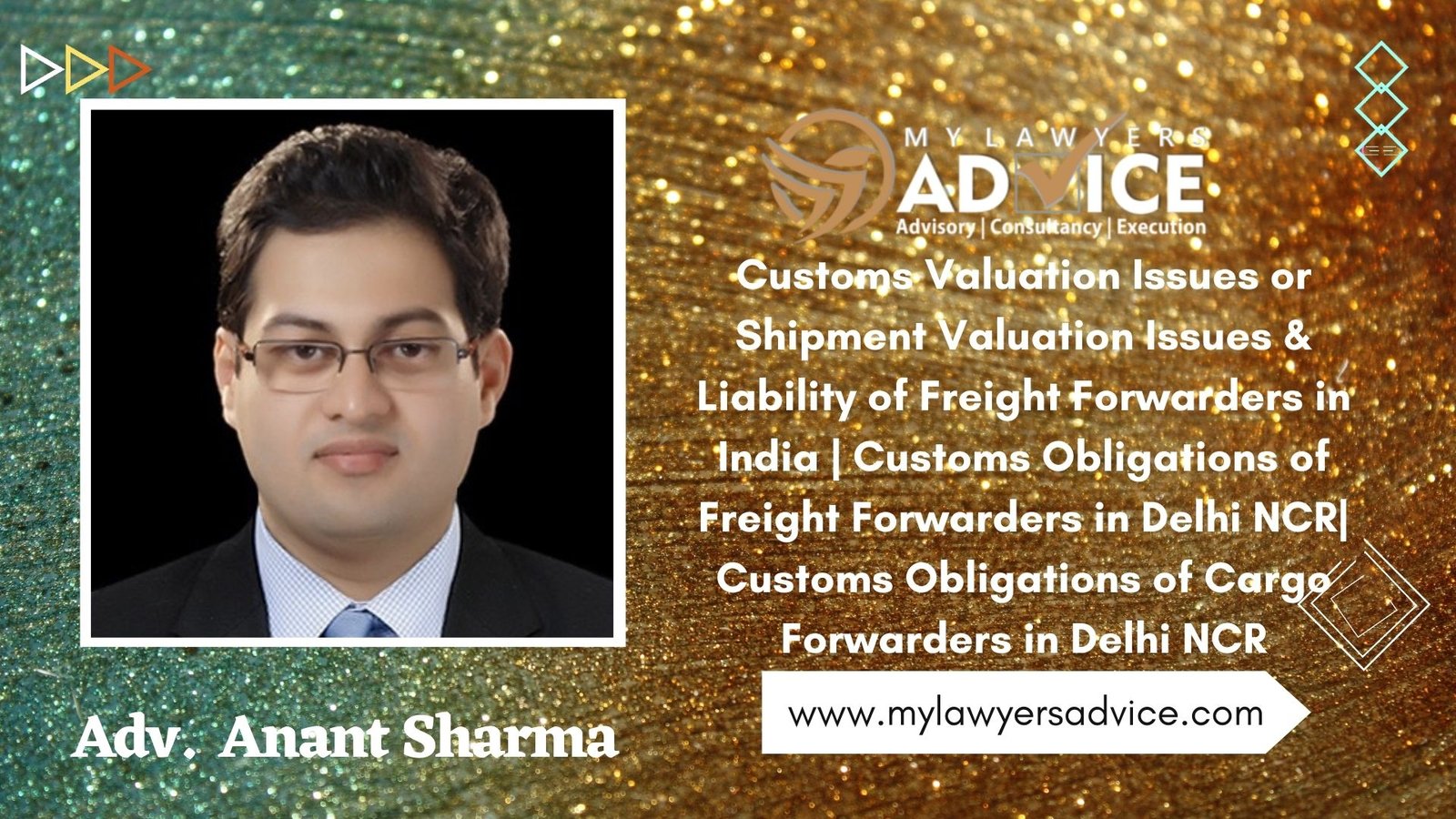Customs Valuation Issues or Shipment Valuation Issues & Liability of Freight Forwarders in India | Customs Obligations of Freight Forwarders in Delhi NCR| Customs Obligations of Cargo Forwarders in Delhi NCR

Customs Obligations of Freight Forwarders in Noida | Customs Obligations of Freight Forwarders in Delhi | Customs Obligations of Freight Forwarders in Gurugram | Customs Obligations of Freight Forwarders in Delhi NCR | Customs Obligations of Cargo Forwarders in Noida | Customs Obligations of Cargo Forwarders in Delhi | Customs Obligations of Cargo Forwarders in Gurugram | Customs Obligations of Cargo Forwarders in Delhi NCR | Customs Obligations of Freight Forwarders in India | Customs Obligations of Cargo Forwarders in India |
Customs valuation is a basic part of global exchange, guaranteeing that precise qualities are relegated to imported merchandise to decide pertinent traditions obligations and charges. Nonetheless, issues connected with customs valuation can emerge because of different elements, prompting expected questions between customs specialists, shippers, and different go-betweens associated with the inventory network, like cargo forwarders. In India, a growing economy with significant international trade, customs valuation issues are not uncommon. Freight forwarders, as key players in the logistics industry, can find themselves facing liability in such situations. It keeps an eye on the gamble of Freight Forwarders as per these issues, uncovering knowledge into their commitments inside the Indian setting.
Customs Valuation Issues:
1. Transaction Value and Related Party Transactions: One of the primary methods for customs valuation is the transaction value method, which considers the actual price paid or payable for the goods when sold for export to the country of importation. Issues can emerge when the connection between the purchaser and vender impacts the exchange esteem, prompting questions about its exactness. Indian customs authorities closely scrutinize related party transactions to ensure that the declared value reflects the fair market value.
2. Royalties and License Fees: The inclusion of royalties and license fees related to imported goods in the customs value can be contentious. Customs specialists might scrutinize the need and precision of these expenses and their effect on the general worth of the products. Importers and their intermediaries, including freight forwarders, must provide clear documentation justifying the inclusion of such fees in the customs value.
3. Computed Value Method: When transaction value cannot be determined, Indian customs authorities may resort to the computed value method, which involves calculating the value of the goods using certain predetermined methods. Debates can emerge assuming there are conflicts about the suitability of the picked technique or on the other hand on the off chance that the exactness of the figured worth is addressed.
4. Declared vs. Actual Goods: Sometimes, discrepancies exist between the declared goods’ value and their actual value due to misclassification, undervaluation, or misdeclaration. Freight forwarders, being intermediaries in the shipping process, can become inadvertently involved in these disputes.
Liability of Freight Forwarders: Cargo forwarders assume a significant part in the strategies and transportation of merchandise. While freight forwarders are not the importers of record, they can still face liability in customs valuation issues.
1. Negligence in Document Handling: Freight forwarders handle various documents related to the shipment, including invoices, bills of lading, and packing lists. If incorrect or misleading information is provided on these documents, it can lead to customs valuation discrepancies. Freight forwarders are expected to exercise due diligence in verifying the accuracy of the information provided by the shipper.
2. Inadequate Record Keeping: Accurate record-keeping is essential in international trade. Freight forwarders are expected to maintain clear and comprehensive records of the goods they handle.
3. Facilitation of Fraudulent Activities: If a freight forwarder knowingly assists an importer in undervaluing goods to reduce customs duties, they can be held liable for participating in fraudulent activities. Indian customs specialists are cautious in distinguishing such practices and can make legitimate moves against all gatherings included.
4. Liability in Related Party Transactions: If a freight forwarder is aware of a related party transaction that could potentially influence the customs value but fails to disclose this information to customs authorities, they could be held liable for non-disclosure.
Customs valuation issues in India can be complex and host monetary ramifications for all parties included. Freight forwarders, as intermediaries in the supply chain, can inadvertently contribute to or be affected by these issues. Customs valuation issues in India can arise when determining the value of imported goods for taxation purposes. Freight forwarders, while not directly responsible for valuation, can be held liable if they provide misleading information or fail to ensure proper documentation.
Authored By; Adv. Anant Sharma & Anushi Choudhary
#CustomsValuation #FreightLiability #FreightForwardersIndia #CargoForwardersDelhi #DelhiNCRLegalAdvice #FreightLawDelhi #GurgaonFreightIssues #NoidaCargoLaw #IndiaFreightCompliance #LegalAdviceFreight #DelhiCargoLaw #NCRFreightIssues #CargoForwardersDelhi #FreightLegalSolutions #DelhiFreightCompliance
